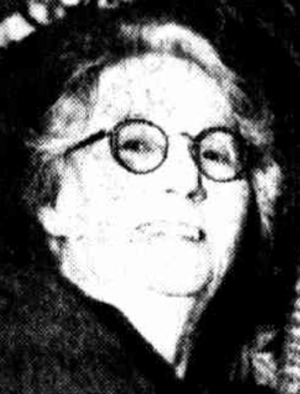Edith Coleman facts for kids
Quick facts for kids
Edith Coleman
|
|
|---|---|
 |
|
| Born |
Edith Harms
29 July 1874 Woking, Surrey, United Kingdom
|
| Died | 3 June 1951 (aged 76) Sorrento, Victoria, Australia
|
| Nationality | Australian |
| Known for | discovery of pseudocopulation in Australian orchids |
| Spouse(s) | James G. Coleman |
| Children | Dorothy Gwynne Coleman and Gladys Winifred Thomson |
| Awards | Australian Natural History Medallion |
| Scientific career | |
| Fields | Natural history |
| Author abbrev. (botany) | E.Coleman |
Edith Coleman (1874–1951) was an amazing Australian naturalist and nature writer. She made very important discoveries about how Australian plants, especially orchids, are pollinated by insects.
Contents
Edith Coleman's Early Life
Edith Harms was born on July 29, 1874, in Woking, England. When she was 13, in 1887, her family moved to Australia. She later became a school teacher.
In 1898, Edith married James G. Coleman. He was a pioneer in cars and started the RACV (a motor club). They had two daughters, Dorothy and Gladys. The family lived in a home called 'Walsham' in Blackburn, Victoria.
Edith did much of her early nature studies right in her garden and the nearby bushland. She also explored nature around their cottages in Healesville and Sorrento, Victoria. Edith Coleman passed away on June 3, 1951, in Sorrento, Victoria.
Her Discoveries in Science
Edith Coleman joined the Field Naturalists Club of Victoria in 1922. From then on, she wrote over 350 articles! These were published in The Victorian Naturalist and also in newspapers and magazines.
She made big scientific contributions to studying many Australian species. This included orchids, mistletoe, spiders, insects, birds, and fish. She also wrote about herbs, gardening, and history.
Solving the Orchid Mystery
One of Edith Coleman's most famous discoveries was about how some orchids are pollinated. This mystery had puzzled scientists for a long time, even Charles Darwin!
Edith found that some orchids don't make nectar to attract insects. Instead, they trick male wasps! These orchids look, smell, and even feel like female wasps. Male wasps try to mate with the orchids, and while doing so, they accidentally pollinate the flowers. This clever trick is called pseudocopulation.
Her work was so important that it was shared internationally by a famous Oxford biologist, Edward Bagnall Poulton. A Harvard entomologist, Oakes Ames, also praised her work.
Edith worked with and inspired many other naturalists. Some of them were Rica Erickson, Herman Rupp, Jean Galbraith, and Richard Sanders Rogers. Richard Sanders Rogers even named an orchid, Prasophyllum colemaniae, after Edith and her daughters!
Edith Coleman also loved promoting Australian and English literature. Many people, like Kate Baker, thought she was one of the most important figures in Australian literature at the time.
Awards and Recognition
In 1949, Edith Coleman was honored with the Australian Natural History Medallion. This award recognized her amazing contributions to natural history.
See also
 In Spanish: Edith Coleman para niños
In Spanish: Edith Coleman para niños
 | Laphonza Butler |
 | Daisy Bates |
 | Elizabeth Piper Ensley |

